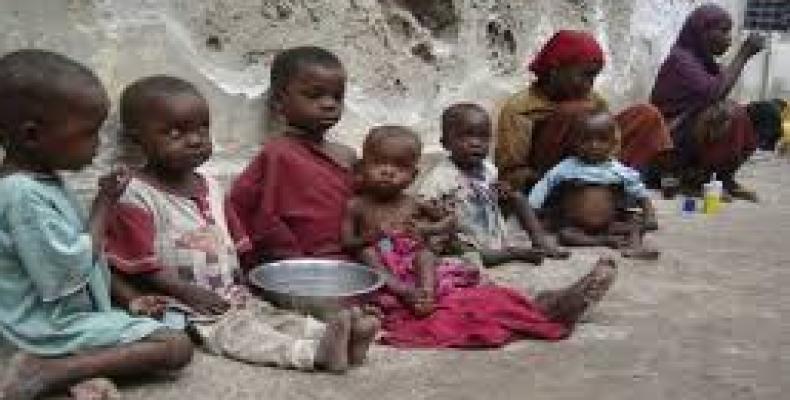United Nations, September 15 (RHC)-- The United Nations has warned that two million people in Somalia could experience starvation if they fail to receive necessary aid as the impoverished Horn of Africa country suffers from its worst drought since 2011.
Following a two-day mission to Somalia, Under-Secretary-General for Humanitarian Affairs and Emergency Relief Coordinator Mark Lowcock said the latest food security analysis indicates that Somalia’s main harvest -- which occurred from April to June -- was the worst since the famine in 2011 due to poor and erratic rains, followed by flooding at the end of the rainy season.
“As a result, up to six million people are now projected to be food insecure over the coming months. A third of them will be severely food insecure without sustained aid,” he said on Thursday. The UN official also warned that climate-related events will “continue to have deleterious effects on the humanitarian situation in Somalia.”
He added that decades of conflict and a lack of investment has ruined much of the African state’s infrastructure and lowered its ability to tackle recurrent humanitarian crises. UN aid chief has warned about a severe hunger in Somalia due to one of the worst droughts in decades plaguing the country.
Lowcock further urged the international community to increase their donations in order to provide those in need in Somalia with life-saving assistance. “Following the failed harvest and the impact of flooding, I urge all donors to step up their generous support to enable the provision of life-saving assistance alongside long-term and durable solutions to help prevent a recurrence of humanitarian crises,” Lowcock said.
Severe droughts complicated by conflict have caused famines in Somalia in many decades. The most recent were the 2010-12 famine, a food crisis in 2014 and a near famine in 2016-17.
In June, Lowcock had predicted that 2.2 million people were expected to face a serious food crisis by September — a 40 percent increase from January.


